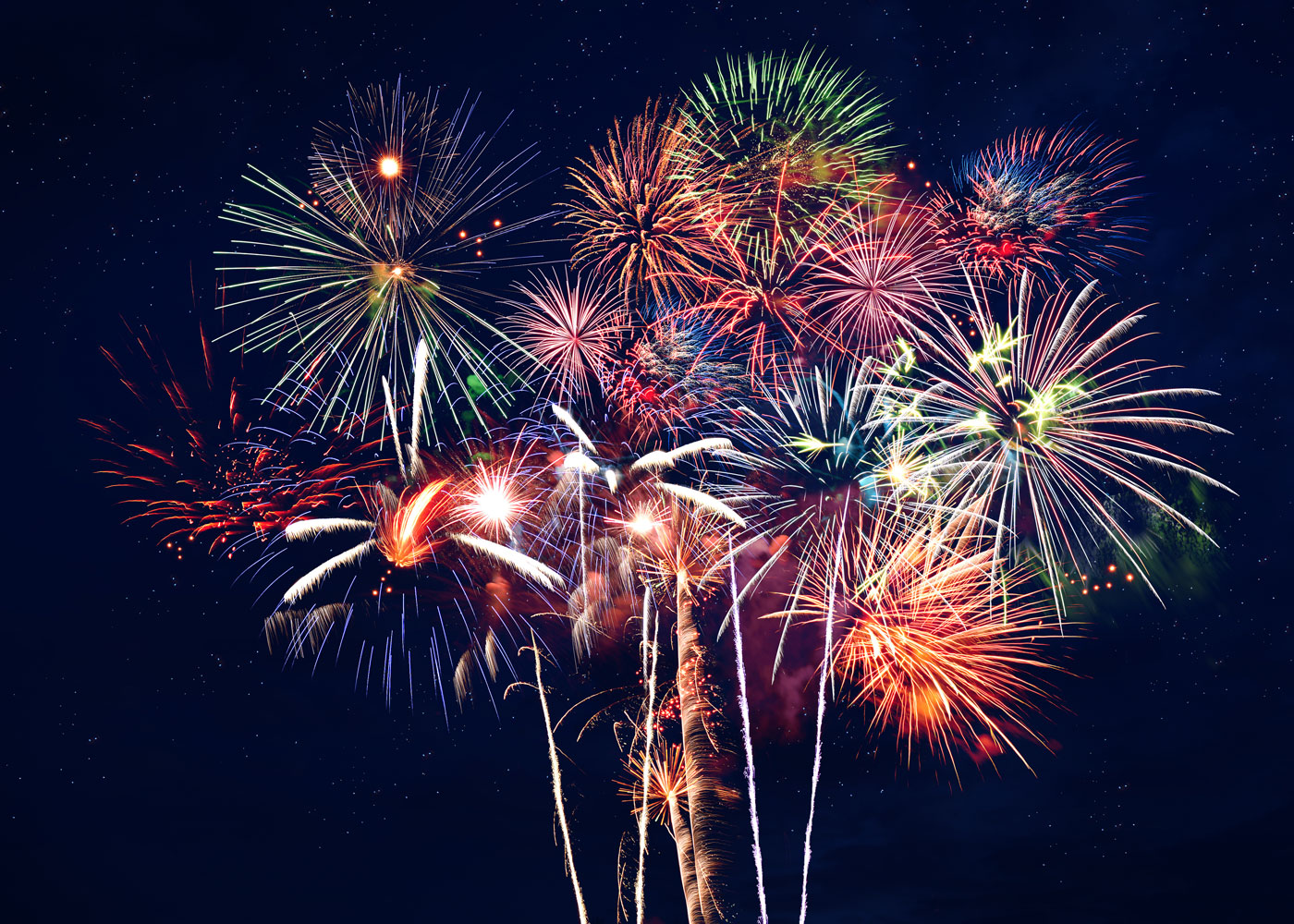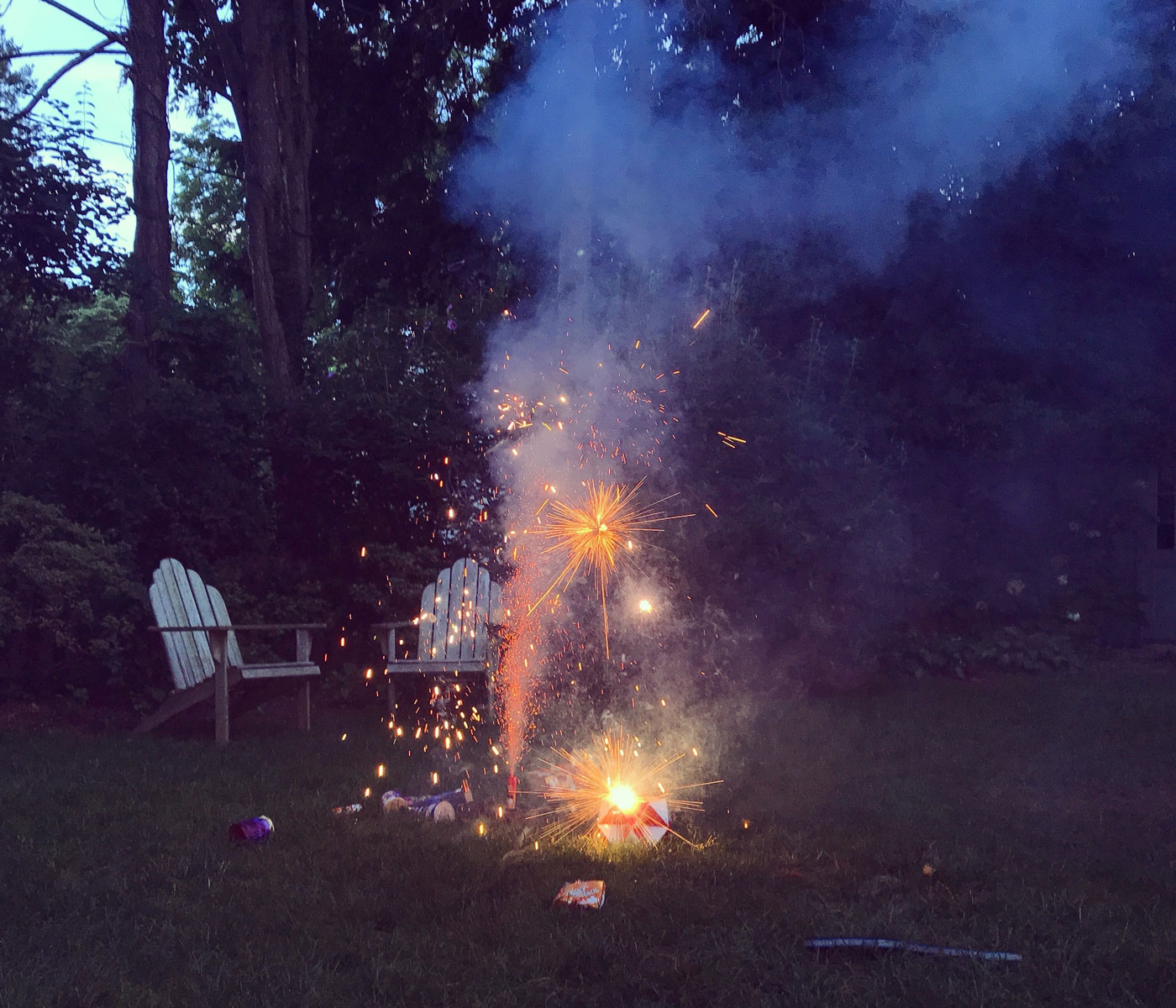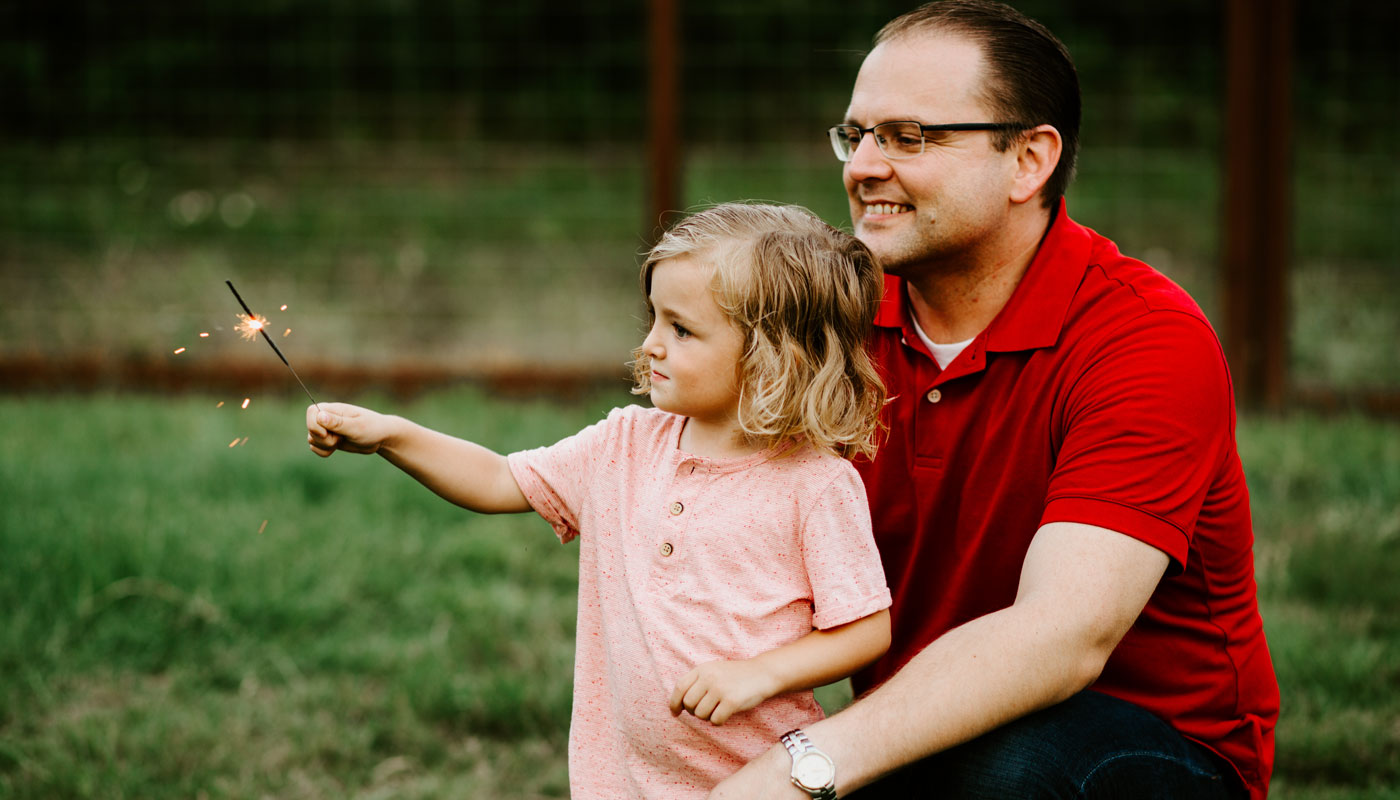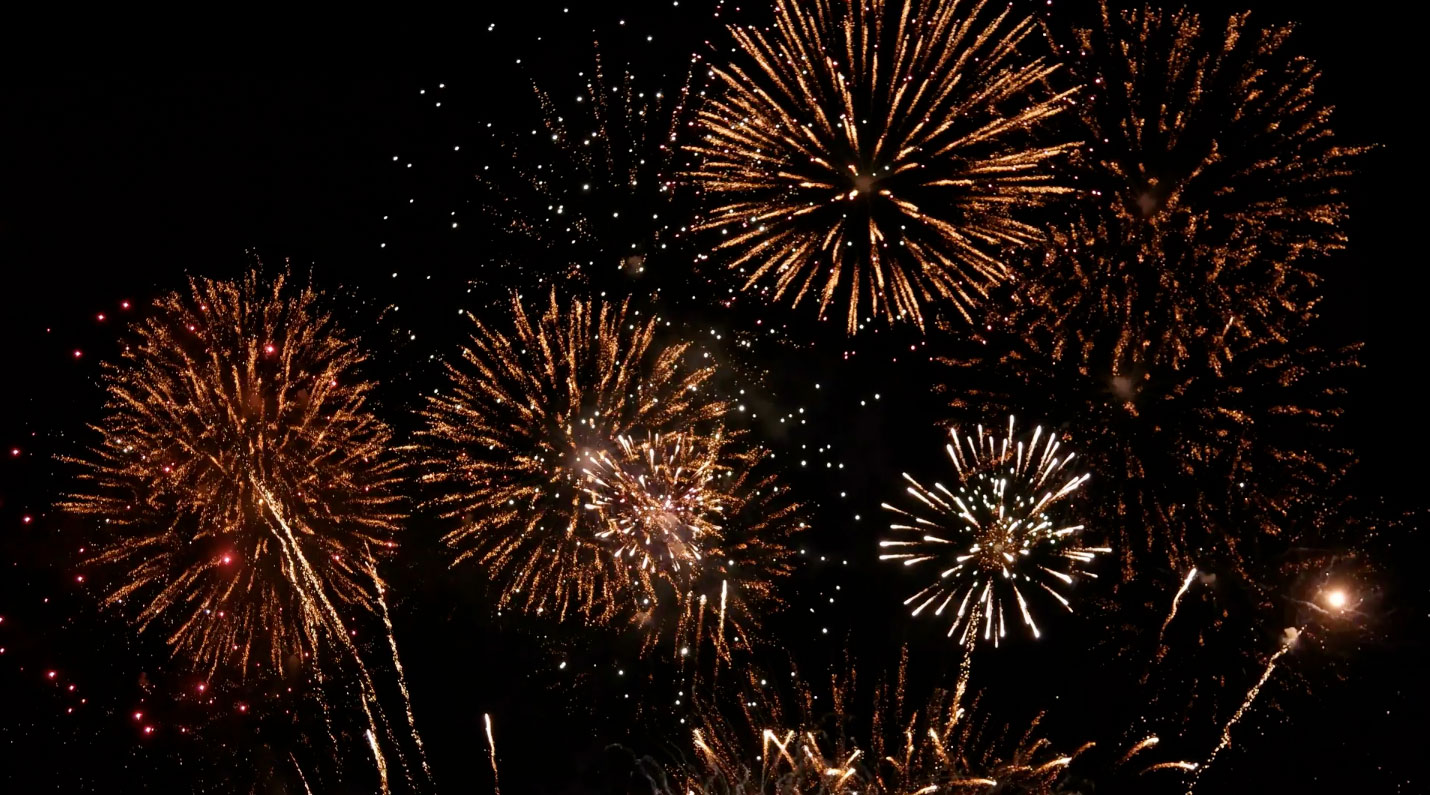Fireworks Safety: Preventing Injury and Fires
Fireworks are most enjoyable when you watch them as a spectator, but if you decide to put on your own display, here are safety tips you should know.
Communal excitement, suspense and explosive displays of light make fireworks shows a spectacle to behold. These brilliant flashes of color evoke a sense of grandeur, joy, love and nostalgia as they illuminate the night sky for special occasions and holidays.
After experiencing one of these displays for yourself, you might be tempted to run to a seasonal pop-up tent to pick up a pack or two. Before you do, it is important to understand what fireworks are available to you, how they work, best handling practices and what your homeowner’s insurance may cover in the event of an accident.
 Getty
Getty
Local and State Fireworks Safety Information
Fireworks Regulations and Laws: Though you may want to light up your backyard like one of Disney’s magical fireworks shows, this is an unrealistic expectation. It is important to understand not all of them are available for public consumption. These explosive devices are broken into two categories: Display Fireworks and Consumer Fireworks.
- Display Fireworks: These large fireworks include candles, aerial shells, cakes and other pyrotechnics. They are typically used in commercial displays under the supervision of a qualified pyrotechnician. Any person involved in the use of, or possession of, these devices is required to obtain a federal explosives license/permit from the Bureau of Alcohol, Tobacco, Firearms and Explosives (ATF). This includes manufacturers, consumers, transporters and importers.
- Consumer Fireworks: Products that can be legally purchased by the general public fall into this category. This includes firecrackers, Roman candles, skyrockets/bottle rockets and mortars, as well as novelty items like sparklers, party poppers and paper tanks and vehicles. Unlike display fireworks, these are not regulated by the ATF and are available in some capacity in every state except Massachusetts. However, specific restrictions vary from state to state. Though it may be tempting to cross state lines to purchase fireworks that are not permitted in your state, being caught in possession of illegal fireworks could result in fines or even jail time.
 Adobe Stock
Adobe Stock
Preparation and Planning for Using Fireworks
There is more to fireworks than lighting a fuse and standing a safe distance away. Location, weather forecast and noise ordinances are major factors that should be considered well before you even purchase fireworks. They will determine what you can or should buy, and how long into the night you can set them off.
- Location: When scouting a location for your explosive entertainment, look for areas away from buildings, trees and dry grass. A level, non-flammable surface is ideal for your launchpad. If you are dealing with un-even surfaces, like dirt and gravel, consider using a flat wooden board for your launch surface.
*Note: Be sure there is a buffer zone of 35-150 feet so spectators can stand a safe distance away.* - Weather Forecast: Wind and periods of drought will negatively impact your firework planning. If there is a forecast for heavy winds, it might be necessary to postpone your show. Winds make launches unpredictable and can cause sparks to land in unintended locations, which could lead to fires or personal injury. Droughts leave the surrounding area dry and susceptible to fires. Some states may even call for a burn ban in periods of low rainfall. Using fireworks when a burn ban is in effect could result in hefty fines. Pay attention to the forecast and update your plan accordingly.
- Noise Ordinances: Noise ordinances vary by community and proximity to urban areas. They usually prohibit the use of loud noises like music, animals, yelling and even fireworks after 10:00 p.m. It is important to research your launch location’s noise restrictions to determine how late your light show can go.
Check out these 9 Do’s and Don’ts that affect home insurance premiums—#7 is affectionately referred to as an “attractive nuisance.”
Learn More Getty
Getty
Fireworks Safety Tips: Equipment and Procedures
Rule number one is obvious, but it must be said: No alcohol consumption for anyone handling fireworks—before or during the show. When dealing with explosive devices, no matter how big or small, it is important to wear the proper protective equipment (PPE), practice fireworks safety and establish an emergency plan to help prevent fireworks injuries.
PPE for Fireworks:
- Eye protection: Safety glasses/goggles help mitigate eye damage from sparks, debris and rogue projectiles.
- Ear plugs: Part of the spectacle of fireworks is the noise, but as thrilling as those explosive sounds are, they can cause hearing loss if your ears are not properly protected.
- Closed-toe shoes: Keep your feet safe from burns and other debris with closed-toe shoes.
- Long-sleeved clothing: Long-sleeved clothing, preferably made from a flame-resistant material like wool, will help protect your arms and legs from getting burned.
Fire Safety Measures:
- Wet the launch area: Prior to launching your first firework, thoroughly spray down the launch area with water to help minimize the chances of an unwanted fire.
- Water or fire extinguisher: It is important to keep water or an extinguisher on hand to combat flames should debris, vegetation or even nearby structures catch fire.
- First aid: Keep a first aid kit stocked with essential items like cold compresses, non-stick pads and burn dressings. Be sure to let guests know where the kit is located so that it can be easily retrieved if needed.
- Supervision of fireworks: Children and teens should not light fireworks without the supervision of a sober adult.
- Lighting fireworks safely:
- Light the fuse and get a safe distance away.
- Do not hold lit fireworks or use your body as a launch pad.
- Never trim fuses or try to light more than one at a time.
- In the event of a dud, do not immediately try to re-light it. Wait ten minutes before approaching, then submerge it in water.
- Firework disposal:
- Submerge them in water overnight.
- Wrap them in plastic bags to keep them moist.
- Throw them away in your household garbage.
Emergency plan: Establish a plan of action for potential injuries or fires. This will allow you and your guests to react swiftly should the need arise.
- For injuries:
- Burns: Remove any clothing that is contacting the burn area unless it is stuck to the skin. Run cool water over it for 10 minutes or more to cool the area. Once cool, cover with a moist, sterile dressing.
- Eye injuries: Cover the affected eye and seek immediate medical attention. Do not flush the eye, apply ointment or take pain meds.
- Limb loss: Cover the appendage with a sterile covering, place it in a bag, put the bag on ice and take the victim to a medical professional for treatment.
- For accidental firework-related fires
- Use your hose, fire extinguisher or sand to combat the flames.
- If the fire is unmanageable, call emergency services.
Don’t Forget Pets: Your pets and your neighbor’s pets can be terrified or overwhelmed by the sounds and colors of fireworks. Many animals both domestic and wild get scared and run from familiar surroundings and end up being lost or in a life-threatening situation such as a busy street or highway.
- Keep Pets away from fireworks:
- Indoors: Leave your pets indoors with loud music or the TV turned on to soften the booming sounds of fireworks.
- Collars and ID: IN case your pet gets scared and runs away from the house, be sure to have a collar with your name and contact information on it.
Homeowner’s Insurance and Fireworks
While fireworks are a blast to watch, accidents do happen, and your home or a neighbor’s could incur damage as a result. If the fireworks being used are legal in your state, your homeowner’s insurance may cover potential damages. However, using illegal fireworks could negate a homeowner’s insurance claim. Prior to planning a fireworks show, ask your homeowner’s insurance provider what coverage your plan has for fireworks-related incidents and notify them about your planned festivities.
If you need to file a claim, call your insurance provider and inform them of the incident. Be sure to keep documentation of medical bills, police reports, repair estimates or any other pertinent information, as this might be requested during the claims process.
 Adobe Stock
Adobe Stock
Enjoy Responsibly
If you are planning a fireworks display for your next big holiday, be sure to bookmark this page. Knowing which fireworks you can legally purchase, where, when and how to deploy them, and what to do in the event of injury or accidental fire will help make your celebration safe and fun.
